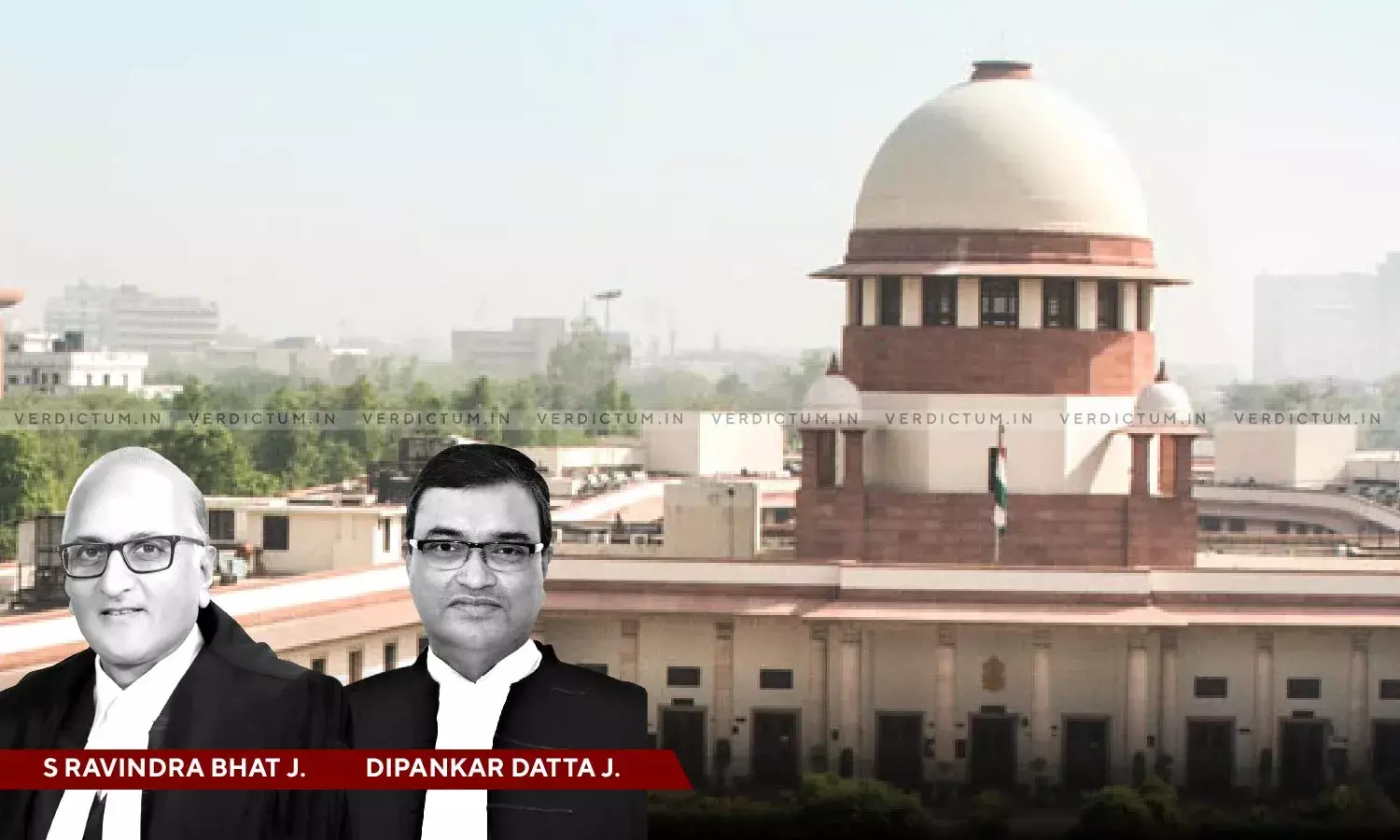SC Upholds Requirement Of Pre-Import Condition To Claim IGST & GST Compensation Cess On Imports Made Under Advance Authorization

A Supreme Court Bench of Justice S. Ravindra Bhat and Justice Dipankar Datta has upheld the requirement of pre-import condition to claim IGST and GST compensation cess on imports made under "advance authorization" (AA).
Senior Counsel Meenakshi Arora appeared for the respondents before the Court.
In this case, appeals were directed against a judgment and order of the Gujarat High Court wherein mandatory fulfillment of a "pre-import condition" incorporated in the Foreign Trade Policy (FTP) of 2015-2020 and Handbook of Procedures (HBP) 2015-2020, was set aside.
According to the High Court, such fulfillment in order to claim exemption of Integrated Goods and Services Tax and GST compensation cess on input imported into India for the production of goods to be exported from India on the strength of an advance authorization was arbitrary and unreasonable.
The Apex Court observed that the concept of ‘pre-import condition’ was not alien, and that the FTP empowered the Director General of Foreign Trade (DGFT) to impose articles other than those specified in the HBP. In that context, it was said that "The retention of the power to impose ‘pre-import conditions’ on articles other than those specified in Appendix-4J, meant that the DGFT could exercise it, in relation to any goods. The High Court has not discussed this aspect, and proceeded on the assumption that only specified goods were subject to the ‘preimport condition’. The existence of paragraph 4.13 (i) reserving the power to insist upon the ‘pre-import condition’, meant that the policy was capable of change, depending on the exigencies of the time. This omission, together with the High Court’s failure to notice paragraph 4.27 (d) of the HBP are serious infirmities in the impugned judgment".
Subsequently, the Court was of the opinion that the introduction of the ‘pre-import condition’ may have resulted in hardship to the exporters, because even whilst they fulfilled the physical export criteria, they could not continue with their former business practices of importing inputs, after applying for AAs, to fulfil their overseas contractual obligations. However, the Court further observed that it cannot be a ground to hold that the insertion of the ‘pre-import condition’ was arbitrary. In furtherance, it was held that "this inconvenience is insufficient to trump the legislative choice of creating an altogether new fiscal legislation, and insisting that a section of assessees order their affairs, to be in accord with the new law. Therefore, the exclusion of benefit of imports in anticipation of AAs, and requiring payment of duties, under Sections 3 (7) and (9) of Customs Tariff Act, 1975, with the ‘pre-import condition’, cannot be characterized as arbitrary or unreasonable".
In light of the same, the appeal of the Revenue succeeded and the orders of the High Court were set aside.
Cause Title: Union of India & Ors. v. Cosmo Films Limited

